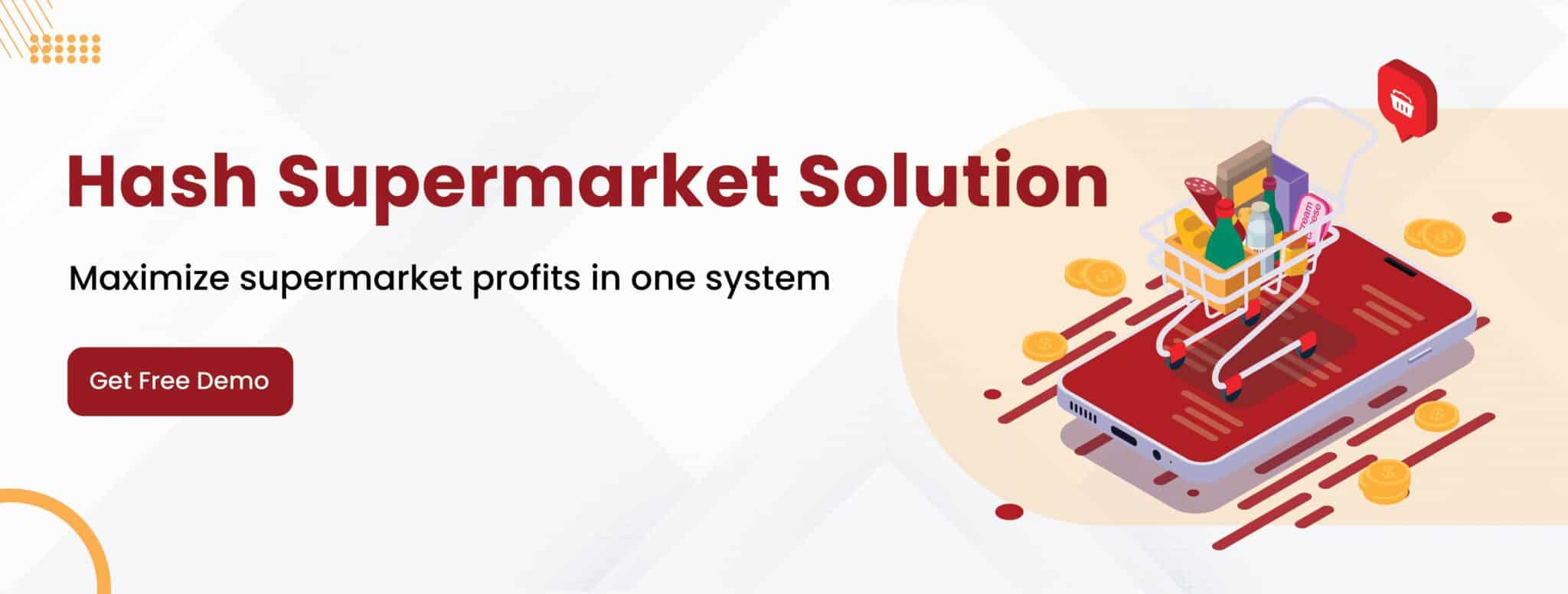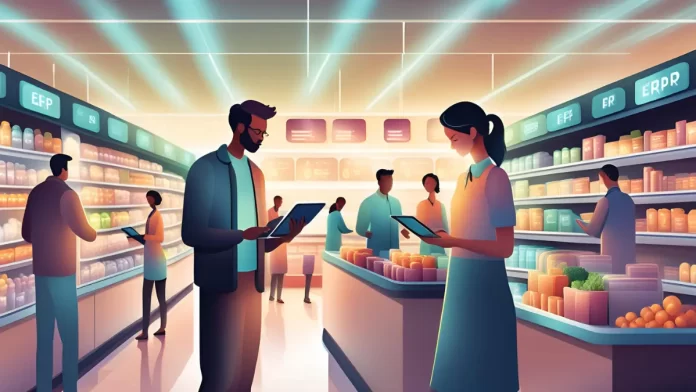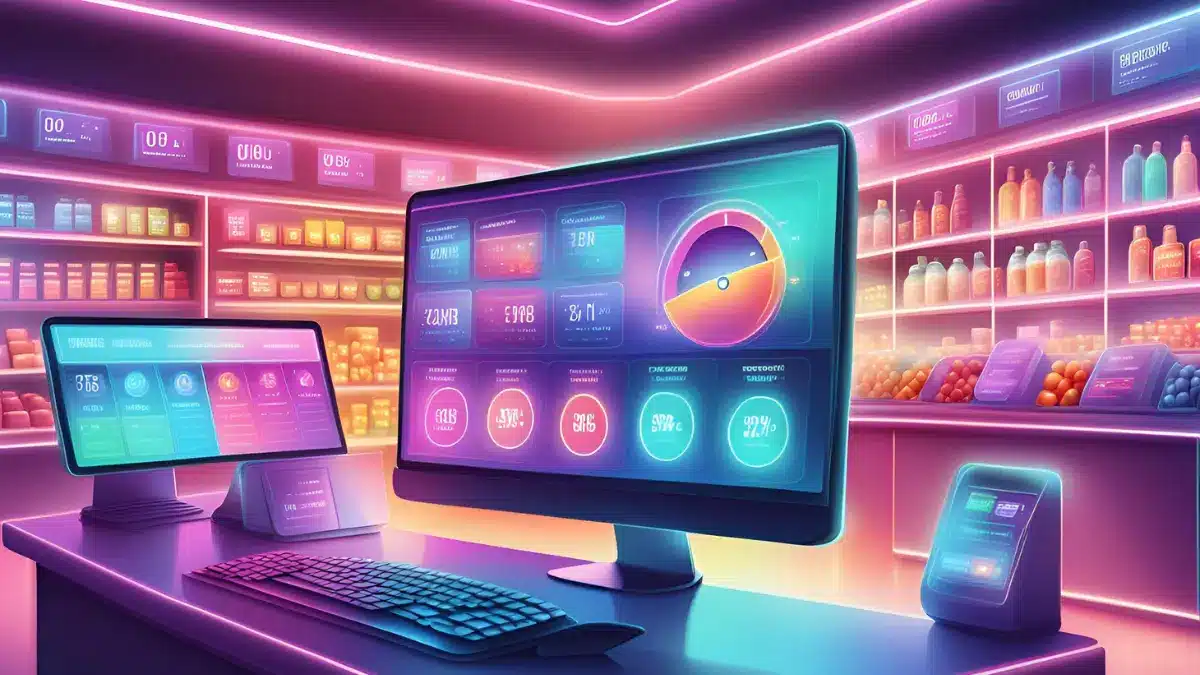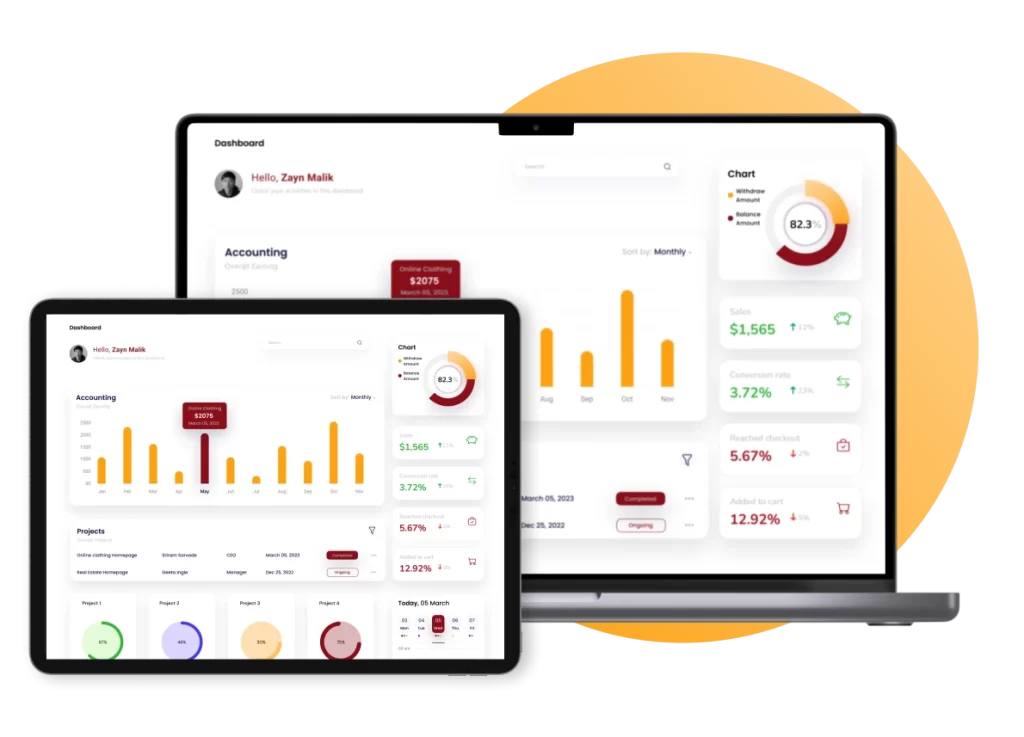In Singapore’s rapidly evolving digital landscape, the supermarket industry faces increasing pressures to innovate and adapt to changing consumer behaviors and preferences. According to the retail sales index by the Singapore Retailers Association (SRA), retail sales increased 4.5 percent on a year-on-year basis in 2023.
As Singapore embraces technological advancements and digitalization, manual business management processes in supermarkets are proving inadequate to meet the demands of modern operations.
From purchasing procedures, inventory management, sales tracking, and customer engagement, to workforce management, supermarkets face numerous challenges that require advanced solutions.
With the complexities of managing hundreds of products and transactions daily, supermarkets in Singapore are prone to issues such as stock shortages, inventory discrepancies, sales inaccuracies, and ineffective decision-making processes.
Hence, there’s a pressing need for efficient and integrated solutions like Enterprise Resource Planning (ERP) software tailored to the Singaporean retail landscape.
This article aims to explore the benefits of implementing ERP wholesaling software in Singaporean supermarkets, from optimizing inventory management to elevating customer experiences. It illustrates how embracing technology can be vital for success in Singapore’s competitive retail market.
Table of Content:
Table of Content
Trends in the Supermarket Industry
In recent years, Singapore’s supermarket industry has undergone significant transformations, influenced by various trends shaping the retail landscape. It’s important to recognize and adapt to these trends to remain competitive and relevant. Here are some recent trends influencing the supermarket industry in Singapore:
- Omnichannel shopping experience: The integration of various sales channels, including physical stores, e-commerce platforms, and mobile applications, to offer customers flexible purchasing options such as in-store shopping, online ordering, and convenient delivery or pickup services.
- Cashless payment: The adoption of cashless payment methods, driven by technological advancements and changing consumer preferences, to streamline transactions and reduce reliance on physical currency.
- Memberships and loyalty programs: Supermarkets in Singapore are focusing on providing personalized shopping experiences tailored to individual preferences and offering loyalty programs to incentivize repeat purchases and enhance customer loyalty.
- AI and big data technology: Leveraging advanced technologies like Artificial Intelligence (AI) and big data analytics to analyze transactional data, predict consumer behavior, optimize inventory management, and deliver personalized product recommendations, thereby enhancing overall operational efficiency and customer satisfaction.
Challenges in Singapore’s Supermarket Industry and How to Solve Them
Supermarkets in Singapore face several challenges unique to the local landscape, requiring innovative solutions to overcome them:
- Difficulty finding the right suppliers: The process of identifying reliable suppliers that offer quality products at competitive prices is a challenge. Implementing ERP software with features like retail procurement and vendor portals streamlines supplier management, enabling supermarkets to access an integrated database of suppliers and expedite procurement processes.
- Inefficient order tracking: Unreliable systems for tracking orders can lead to delays, errors, and inefficiencies in inventory management. ERP software provides integrated tracking features that offer real-time visibility into order statuses, facilitating better supply chain management and enhancing customer satisfaction.
- Complex inventory management: Managing diverse product ranges, minimizing stock shortages, and preventing excess inventory is essential for supermarkets. ERP software helps optimize inventory management with features like real-time stock monitoring, demand forecasting, and automated procurement processes, ensuring optimal stock levels and maximizing sales opportunities.
- Ineffective customer data management: Poor management of customer data impedes supermarkets’ ability to understand consumer preferences and behaviors. ERP software integrates customer data, enabling supermarkets to analyze purchasing patterns, personalize marketing efforts, and implement loyalty programs effectively.
- Poor employee management: Scheduling shifts, managing leave, and ensuring efficient training for employees are crucial aspects of workforce management. ERP software simplifies HR processes, offering features like attendance management and performance evaluation, thereby enhancing productivity and efficiency across supermarket operations.
- Lack of integration: Inefficient systems for inventory management, sales, finance, and human resources impede operational efficiency and decision-making. ERP software integrates these processes, enabling seamless data exchange, improving coordination between departments, and facilitating effective decision-making based on accurate, real-time information.
The use of ERP software in the Singapore industry can be an effective solution to overcome the various challenges mentioned above. This software helps increase efficiency, reduce costs, and adapt to a competitive environment.
With features such as inventory management, business process integration, and in-depth data analysis, ERP software helps supermarkets optimize operations and minimize losses.
Key Benefits of ERP Software for the Supermarket Industry
The supermarket retail industry in Singapore requires ERP software due to several need in managing complex operations. Here are some reasons why supermarkets need ERP software in their management:
Vendor Portal
ERP software simplifies the process of finding the right suppliers with the implementation of e-procurement and vendor portal features. Management can access an integrated supplier database containing information on reputation, product availability, and pricing conditions.
Search and filter features enable finding suppliers that match specific supermarket needs, thus speeding up procurement processes and ensuring better product quality for customers.
Efficient order tracking
With integrated tracking features, various information about order status can be accessed quickly and accurately, from the ordering process to delivery. This allows management to monitor and manage the supply chain more effectively, reducing delays, and ensuring customer satisfaction.
Inventory optimizer
ERP software features such as real-time stock monitoring, demand forecasting, and automated purchasing processes enable supermarkets to optimize inventory management and maximize sales by ensuring product availability, as well as prevent understock, overstock, or dead stock.
Customer data management
ERP software helps in managing customer data by providing an integrated platform across all branches to collect, save, and analyze customer information. The information is useful for identifying purchasing patterns, product preferences, and shopping behavior, which can then be used to offer incentives such as loyalty programs and memberships.
Employee management
With features such as attendance management, leave management, and performance evaluation, ERP software simplifies HR management tasks and improves overall productivity and efficiency in the supermarket environment. ERP software also facilitates scheduling, employee performance monitoring, and centralized employee administration.
Integration with other modules
Data generated from one module can be easily accessed and used by other modules without the need for complex manual processes or data duplication. This can improve operational efficiency, ensure data consistency, and facilitate accurate decision-making based on up-to-date and accurate information.
Supermarkets should opt for the best supermarket software available to best suit their needs and requirements to enhance operational efficiency.
Optimize Supermarket Management with HashMicro’s ERP Software
Choosing the right ERP software for the supermarket retail industry will enhance collaboration and connectivity with business partners. It also speeds up workflows, reduces process errors, and enhances overall supply chain efficiency.
HashMicro’s ERP software is integrated and designed to assist in managing all aspects of business more easily and efficiently. From accurate inventory management, advanced sales tracking, loyalty points management, and home delivery management, to omnichannel integration, HashMicro provides the right solutions to meet the needs of retail stores.
HashMicro’s solutions offer essential modules for efficient operations, including inventory, sales, accounting, cashiering, customer relationship management (CRM), and more. Each module from HashMicro is fully integrated, facilitating quick decision-making and streamlining information exchange between departments.
Thus, HashMicro’s ERP software enhances operational efficiency, and business connectivity, and provides a better customer experience in the supermarket retail industry. Get a free demo to learn more about how our solutions can help you.





































